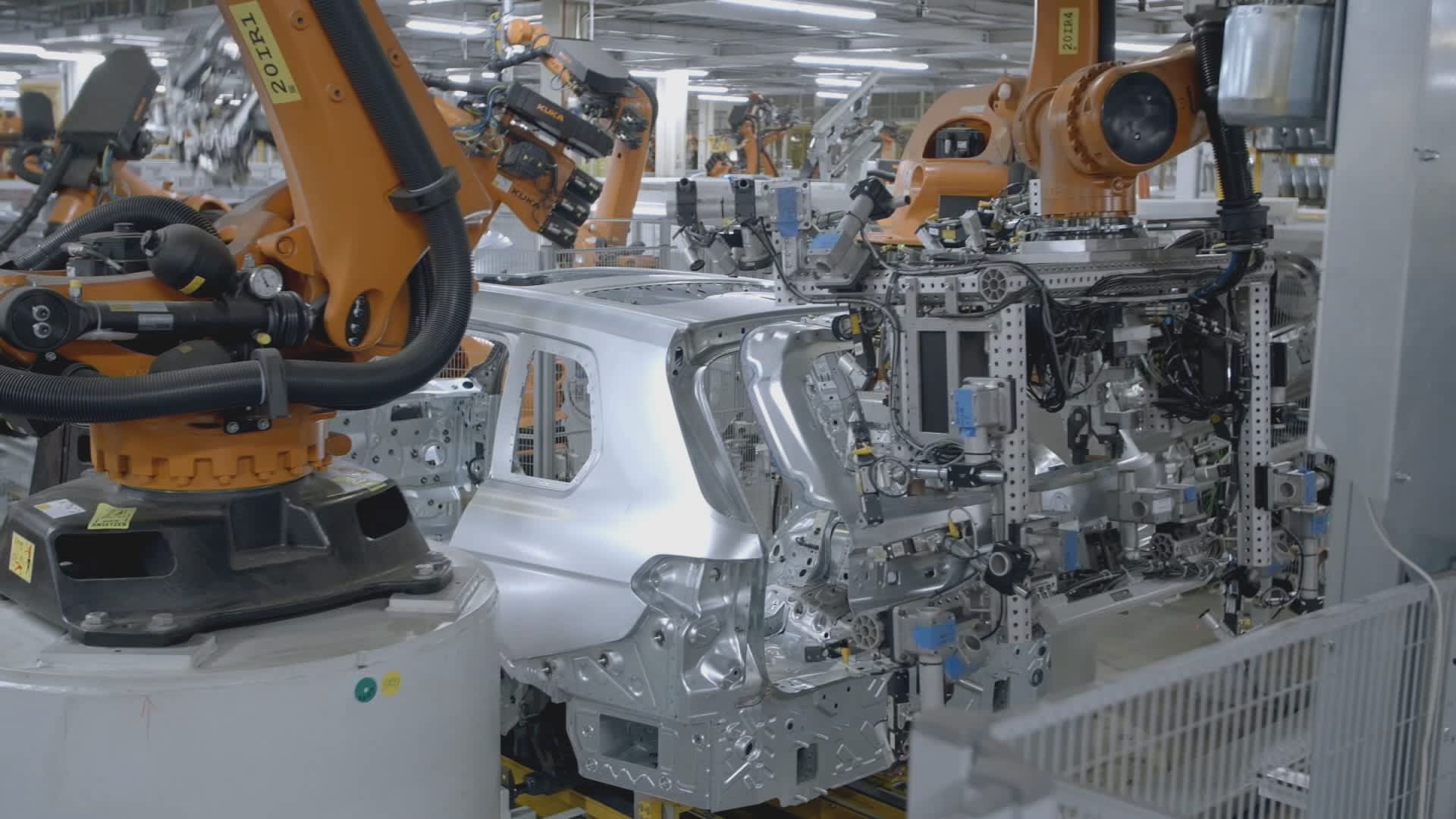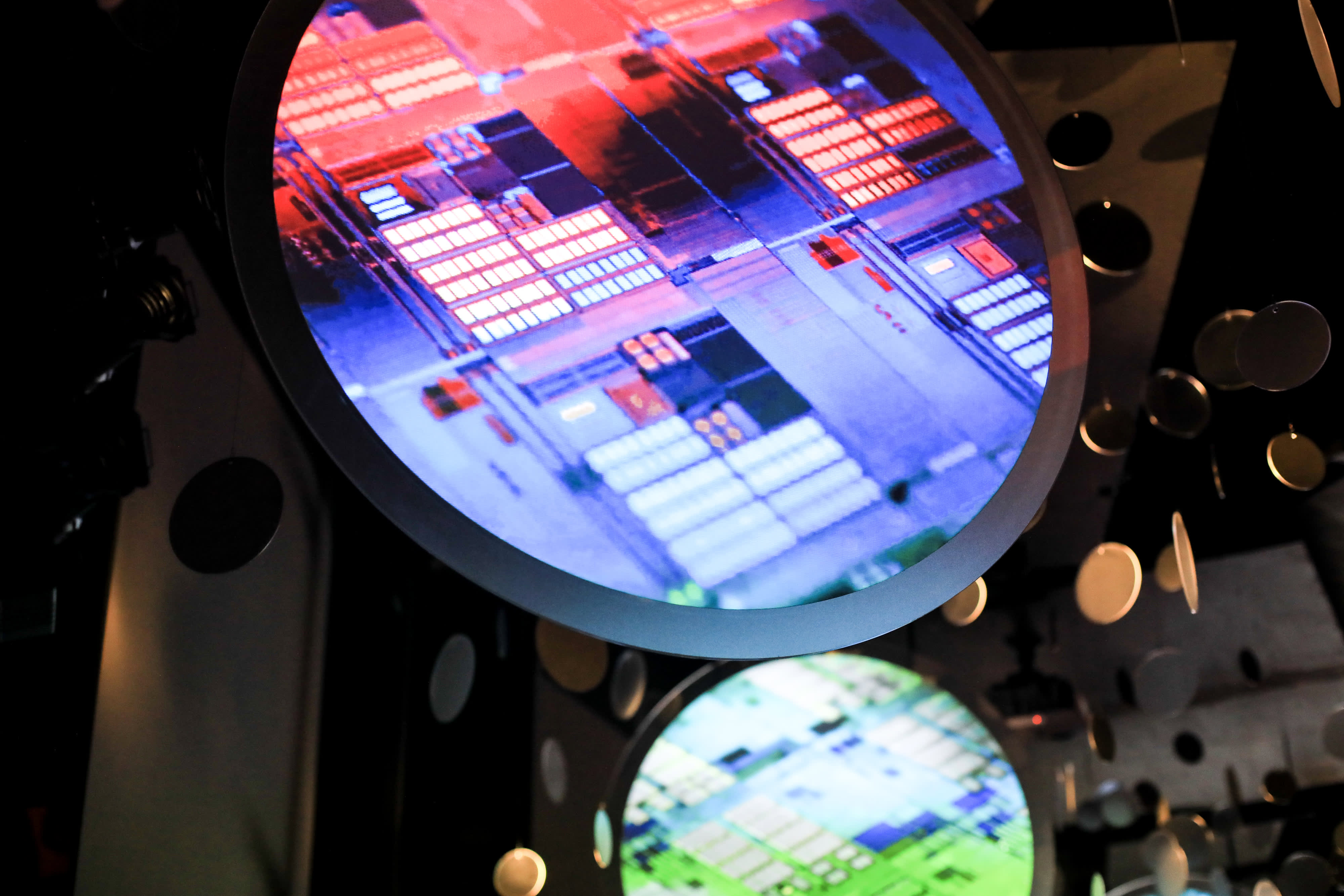
Artificial intelligence is making a big effect on the auto industry.
Revenue from sales of autonomous vehicles is anticipated to top $70 billion by 2033, according to Future Market Insights. But self-driving cars powered by AI are not the only change — AI technology is already being infused into vehicle production.
related investing news


As part of that industry-wide trend, the BMW Group is now shifting gears to rely more heavily on AI to create a leaner and more efficient manufacturing process.
Inside BMW’S plant Spartanburg in South Carolina.
CNBC
Over the past few years, BMW has upgraded its Spartanburg, South Carolina, plant to include new AI capabilities. The factory spans more than 8 million square feet and produces about 60% of all BMWs sold in the U.S. That works out to more than 1,500 vehicles produced daily.
In the body shop, robots weld between 300 and 400 metal studs onto the frame of every SUV. That’s about half a million studs each day applied by machines and now managed by AI.
The assembly line inside BMW’s plant Spartanburg.
CNBC
Further down the line, AI technology checks to ensure every stud is precisely placed, according to BMW Group Manager Curtis Tingle. If a stud is misplaced, the system tells the robots to correct it. No human intervention is needed.
“It’s a fully closed loop,” Tingle told CNBC. “[AI] removes the human thinking, the human manual intervention, directly out of the equation.”
Tingle said the new technology has dramatically improved efficiency. “We’re achieving five times of what we thought was even possible before, with what the AI is achieving now.”
A BMW worker at the AI Stud Correction Station.
CNBC
According to Tingle, the AI stud correction laser has already saved the company more than $1 million a year. The new tech, he said, has allowed BMW to remove six workers from the line.
BMW told CNBC the AI technology is patent pending and was developed inside the Spartanburg plant.
On the factory floor, BMW Group’s IT Project Lead Camille Roberts explains new AI software is helping speed up the automaker’s existing inspection process.
As SUVs move down the line, 26 different cameras throughout the floor snap photos. That’s when, according to Roberts, “the AI kicks in, identifying issues and flagging them for a human to fix,” thus preventing an imperfect vehicle from getting shipped out.
BMW’S AIQX camera inspecting vehicles.
cnbc
Roberts told CNBC that before the new AI upgrade, human workers couldn’t check every vehicle to the extent they can now, adding, “it’s not really humanly possible to inspect every single car. … The production numbers just wouldn’t meet the global demand.”
Oliver Bilstein, BMW Group’s vice president of logistics and production control, said there’s still room to run for BMW’s AI technology.
Workers at the plant wear what Bilstein calls factory scanner devices that take measurements and high-resolution images of every centimeter of the factory.
Those images are used to build a 3D “digital twin” of the plant, allowing BMW to instantly make adjustments and understand how it will affect production before it implements a change in the real world, Bilstein said. BMW factory planners around the world can access those detailed plans online.
With the help of new AI software, the scanning process now takes days instead of months, Bilstein said.
Eventually, this type of AI technology will be able to learn, on its own, how to discover and recommend new ways to make the BMW Group’s automated assembly line even more efficient, he said.







